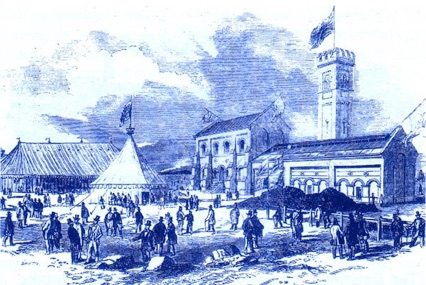
In the realm of public health, there are few individuals whose work has had such a profound impact as Dr John Snow. Although largely ignored and dismissed during his time, Dr Snow’s groundbreaking research on cholera has since become a cornerstone of epidemiology and has shaped the way we approach disease prevention and control. This article delves into the remarkable journey of Dr John Snow, highlighting his pivotal role in unraveling the mysteries of cholera and revolutionizing public health practices.
Early Life and Education
Dr John Snow was born on March 15, 1813, in the city of York, England. From a young age, he displayed a keen interest in science and medicine, which eventually led him to pursue a career in the medical field. After completing his medical apprenticeship, he enrolled at the Hunterian School of Medicine in London, where he further honed his skills and developed a passion for studying diseases and their causes.
The Cholera Epidemics
During the 19th century, London was plagued by recurrent cholera epidemics that claimed the lives of thousands of people. Cholera, a highly contagious and deadly disease, spread rapidly through contaminated water sources, resulting in severe dehydration and often death. Despite the devastating impact of cholera, the prevailing belief at the time attributed its spread to foul odors or “miasma” rather than contaminated water.
Challenging the Miasma Theory
Dr John Snow, however, was not convinced by the prevailing miasma theory. He believed that cholera was transmitted through contaminated water and set out to prove his hypothesis by meticulously gathering data and conducting detailed investigations. His meticulous approach, along with his expertise in mapping and statistics, would prove instrumental in challenging the established beliefs and transforming the field of epidemiology.
The Broad Street Pump Outbreak
One of the most notable events in Dr Snow’s career was his investigation of the Broad Street pump outbreak in 1854. This outbreak, which occurred in the Soho district of London, claimed the lives of hundreds of residents. Dr Snow meticulously tracked the cases of cholera and mapped them, ultimately identifying the source of the outbreak as the contaminated water from the Broad Street pump.
Removing the Handle: A Bold Move
Armed with his findings, Dr Snow took decisive action. He convinced local authorities to remove the handle of the Broad Street pump, effectively cutting off the source of contaminated water. This bold move led to an immediate decline in cholera cases in the area, providing compelling evidence for the waterborne transmission of the disease.
The Impact of Dr Snow’s Work
Dr John Snow’s groundbreaking work on cholera marked a turning point in public health history. His rigorous approach to data collection, mapping, and analysis laid the foundation for modern epidemiology. By proving the link between contaminated water and cholera transmission, he challenged prevailing theories and paved the way for improved sanitation practices.
Legacy and Recognition
Although his work was initially met with skepticism and resistance, Dr John Snow’s contributions to public health have since been widely recognized and celebrated. His findings and methodologies have influenced generations of researchers and practitioners, shaping public health policies and interventions worldwide. Today, the John Snow Society and the John Snow Pub in London stand as tributes to his enduring legacy.
Conclusion
Dr John Snow’s groundbreaking research on cholera not only saved countless lives during his time but also laid the groundwork for modern epidemiology and public health practices. Through his meticulous investigations and unwavering commitment to scientific rigor, he challenged prevailing beliefs, ultimately changing the course of public health history. Dr Snow’s work serves as a testament to the power of evidence-based medicine and the critical role of dedicated individuals in advancing the field of public health.
